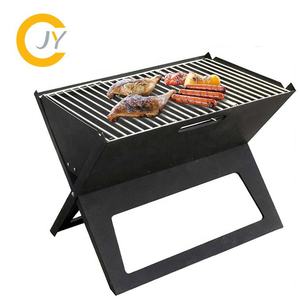The gridiron is a timeless tool in traditional cooking, cherished for its effectiveness in outdoor grilling and open-flame cooking. For centuries, this straightforward yet versatile device has been a staple in culinary practices around the world. This article explores the history, mechanics, types, and benefits of the gridiron to illustrate why it remains indispensable in both kitchens and outdoor cooking today.
The Origins and Evolution of the Gridiron
The gridiron’s origins trace back to ancient civilizations. Early versions were simple metal frames with parallel bars, used to grill food over open flames. These grill-like structures were found in societies from the Roman Empire to medieval Europe. The term "gridiron" comes from the tool's distinctive grid shape, marked by parallel metal bars.
Traditionally made of wrought iron for its durability and heat resistance, gridirons were placed over fire pits to cook meats, fish, and vegetables evenly. Though grilling techniques have advanced, the basic design and purpose of gridirons persist, ranging from small portable grills to large professional setups.
How Gridirons Function in Cooking
Gridirons work on a basic principle: food is grilled directly over a heat source, such as fire or charcoal, by resting on a metal grid. The gaps between the bars allow heat to circulate evenly, ensuring thorough cooking on all sides. The heated metal also leaves grill marks, enhancing the food's flavor by searing its exterior.
Gridirons are commonly made from cast iron, stainless steel, or aluminum. Cast iron gridirons retain heat well, ideal for thicker meats that require slow cooking, while stainless steel models are lightweight and easy to clean, making them suitable for everyday grilling.

Types of Gridirons and Their Applications
Different types of gridirons cater to varying cooking styles. Here’s a look at some popular varieties:
Traditional Cast Iron Gridiron
Known for its durability and heat retention, the cast iron gridiron is favored for open-flame cooking. It excels at grilling meats like steaks and burgers, with its heavy bars achieving high temperatures that sear food beautifully. When seasoned, cast iron also gains a natural non-stick quality, enhancing flavor over time.Stainless Steel Gridiron
Lightweight and rust-resistant, stainless steel gridirons are great for everyday use, especially in gas or charcoal grills. Their smooth surface is easy to clean, making them ideal for grilling foods that don’t require heavy searing, such as poultry and vegetables.Adjustable Gridirons
Adjustable gridirons allow for height adjustments, enabling the user to control the distance between the food and heat source. This flexibility is beneficial for grilling various types of food simultaneously, making these gridirons ideal for professional or competitive grilling.Portable Gridirons
Compact and travel-friendly, portable gridirons are often made from lightweight metals like aluminum and can be folded for easy transport. Popular among campers and outdoor enthusiasts, these gridirons offer a quick way to grill on the go, achieving high temperatures despite their smaller size.

Advantages of Using a Gridiron for Cooking
Cooking with a gridiron provides distinct benefits that enhance the culinary experience, especially in terms of flavor, texture, and versatility.
Enhanced Flavor
The gridiron's direct heat and open-flame cooking style impart a unique, smoky flavor to food. The Maillard reaction, which browns and crisps the surface of food, creates a deliciously complex flavor that locks in moisture and adds depth to dishes.Uniform Cooking
A gridiron’s design promotes even heat distribution around food, allowing it to cook uniformly. This is crucial for thicker cuts of meat, where an even cook ensures a perfect balance between a crisp exterior and juicy interior.Versatility
Beyond grilling meats, gridirons are incredibly versatile and suitable for cooking vegetables, seafood, and even fruits. With options to adjust the heat source or gridiron height, they offer precision cooking for both quick searing and slow grilling.Durability and Longevity
Quality gridirons, particularly those made from cast iron or stainless steel, are built to last. With proper care, a well-maintained gridiron can serve for decades, making it a valuable investment for any serious cook.
Caring for Your Gridiron
Maintaining a gridiron is essential for ensuring its longevity and effectiveness. Here are a few key tips:
- Seasoning: For cast iron models, regular seasoning helps prevent rust and creates a non-stick surface. Apply a thin layer of vegetable oil after cleaning, then heat the gridiron to bond the oil with the surface.
- Cleaning: Clean your gridiron after each use. Use a wire brush for stainless steel models, and avoid harsh chemicals or steel wool that can damage the surface.
- Storage: Keep your gridiron dry to prevent rusting. If storing a cast iron gridiron, apply a light coat of oil before putting it away.

Conclusion
The gridiron remains an essential tool for grilling and cooking enthusiasts, offering unmatched flavor, versatility, and durability. Whether used by professional chefs or weekend grillers, a quality gridiron can elevate your culinary creations and withstand years of use. From its ancient origins to its place in modern grilling, the gridiron is a timeless tool, perfect for anyone aiming to achieve delicious, flame-kissed dishes.
